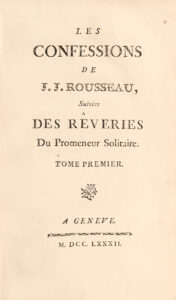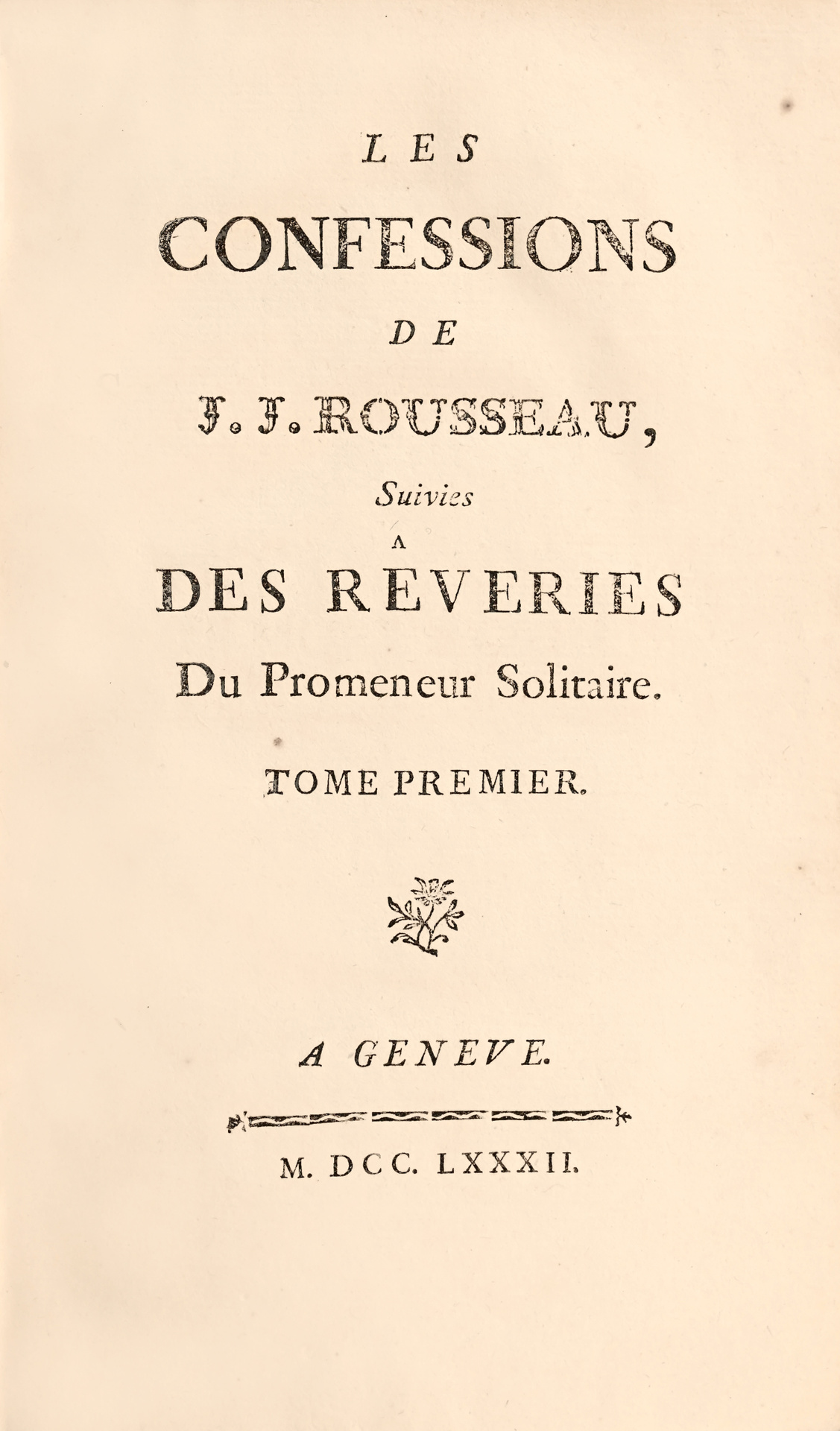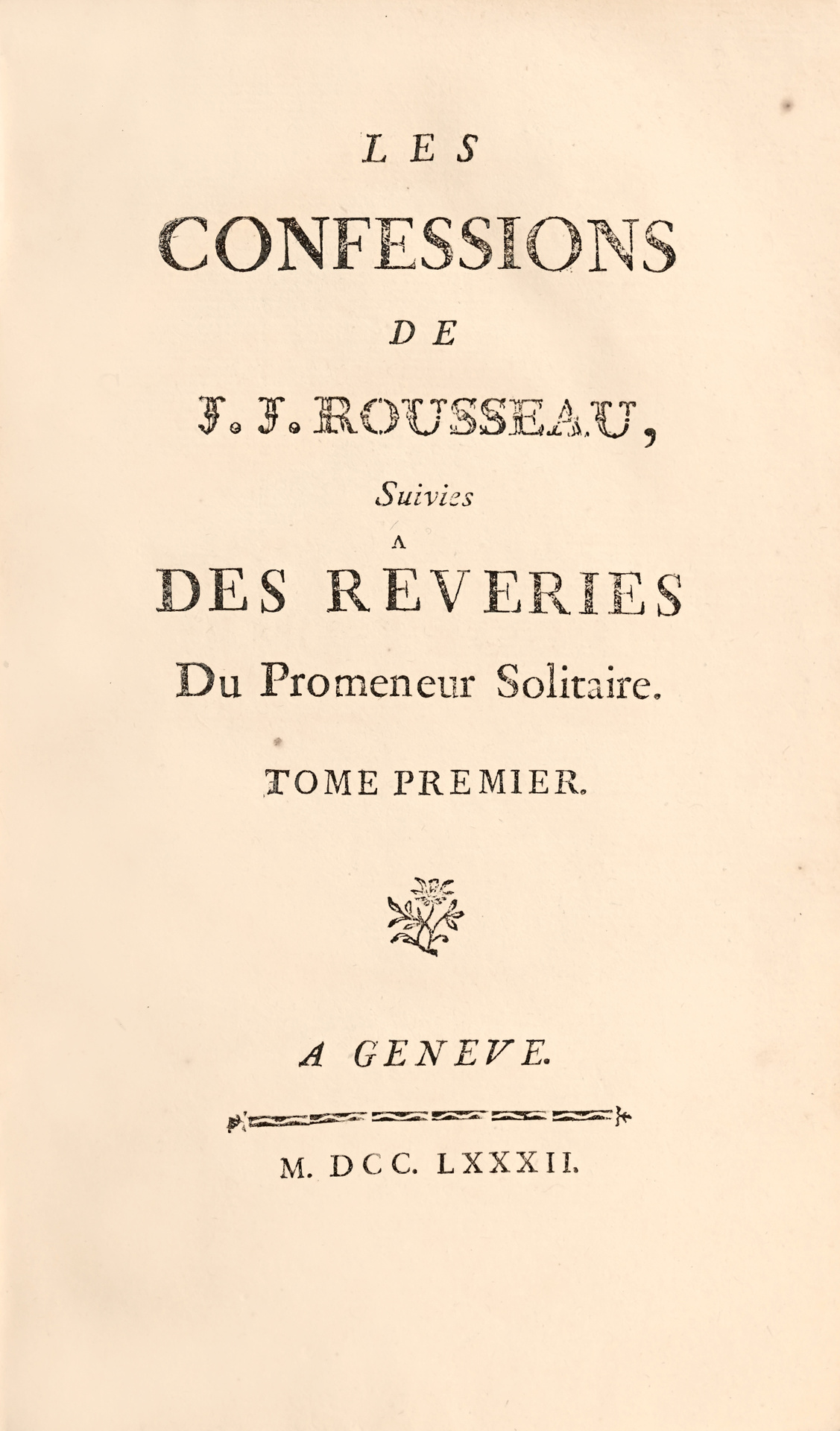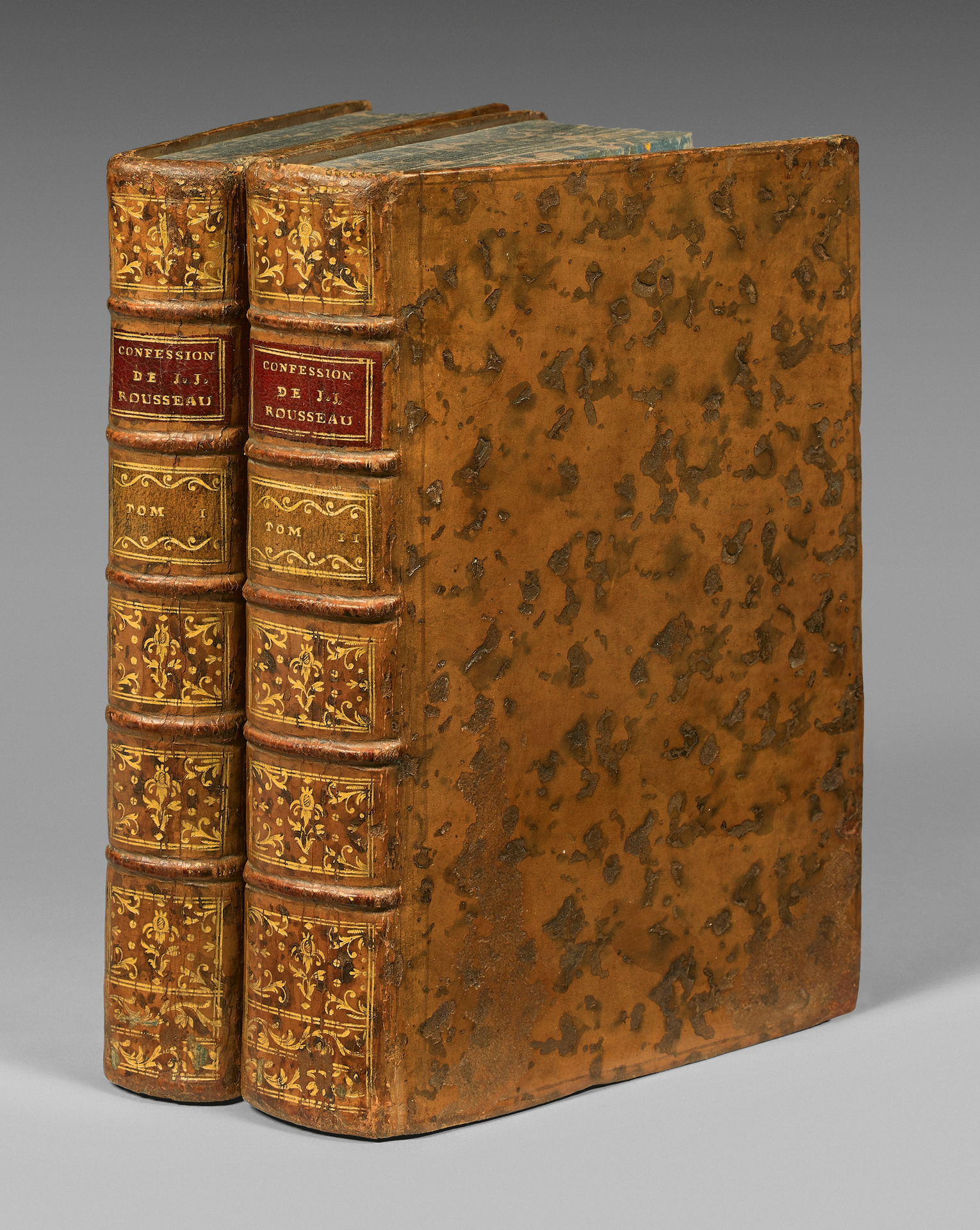Genève, [Société typographique], 1782.
2 volumes 8vo [199 x 119 mm] of :I/ (4) pp., 471; II/ (4) pp., 279, (1) p., 300.
Bound in contemporary marbled calf, blind-stamped fillet around the covers, spines ribbed decorated with gilt fleurons, red and olive green morocco lettering pieces, blue marbled edges. Contmporary binding.
Tchemerzine, V, pp. 562 and 563; Graesse, Trésor de livres rares, VI, p. 177; Brunet, IV, 1422; Dufour 340; Cioranescu, III, 54642; Bulletin Morgand et Fatout, 9540.
Les Confessions, the famous autobiography of Jean-Jacques Rousseau, consists of 12 books and was published in two installments: the first six books in 1782 and the rest in 1788.
“My Confessions were not intended to be published during my lifetime,” wrote Rousseau.
“In May 1778 he gave Paul Moultou the so-called ‘ from Geneva’ manuscript to be published after his death; it is this text that almost all publishers reproduce. The first part (I-VI) was published in Geneva by the Société typographique; of the three editions for which it was responsible in the same year 1782, priority in all probability goes to the separate edition ‘in large characters’, in two parts, ‘Les Confessions de Jean-Jacques Rousseau’, followed by ‘Rêveries du Promeneur solitaire’, Geneva, 1782.” (Dictionnaire J.J. Rousseau.)
“In this book, the author makes a general admission of his faults without, moreover, separating them from the history of his time. This is why they could be called Memoirs. But, in the end, his aim is not so much to confess as to paint himself, in order to justify himself. By showing himself to his fellow men ‘in the truth of his nature’, he thinks he is at the same time making an essential contribution to the history of man.
By his naturalness, Jean-Jacques is forever at odds with his era: an era steeped in artifice, which no longer cultivates anything but pleasure, boredom and dryness of heart.” (Dictionnaire des Œuvres, II, p.20).
“Coming entirely from Montaigne, the Rousseau of the ‘Confessions’ is the father of Chateaubriand, but he also influences Alfieri, Goldoni, Wordsworth, Goethe, Renan, Anatole France, Gide, etc.”
According to Victor Cousin: “Rousseau is, like Tacitus, a great writer. Except for Pascal, no one has left such a mark on the language”.
When Jean-Jacques Rousseau begins the Rêveries, he knows that he does not have long to live; he also knows that he has nothing more to expect from men, with whom he does not even want to have a relationship.
The 10 Promenades that make up the Rêveries were written on a day-to-day rythm, in no pre-established order, at random, based on encounters, meditations and memories.
There is no end to the works in which the influence of the Rousseau of the Rêveries was decisive. It is Rousseau’s influence that we encounter at his most direct disciple, Bernardin de Saint-Pierre; it is his influence that determined Chateaubriand to write René (as well as Goethe‘s Sufferings of Young Werther ).
The influence of the Rêveries had no less impact on the prose writers of the 19th century: it can be said that wherever one finds a fresh, lively and sentimental evocation of nature, in Michelet as well as in George Sand, for example, one can recognize the mark of Rousseau. Closer to us, there is no doubt that Rousseau was the precursor of the “populists“, whether they are poets like François Coppée, or prose writers like Charles-Louis Philippe.
“All the Romantic poets were influenced by him, from Lamartine’s ‘Les Méditations poétiques’ to Victor Hugo’s ‘Feuilles d’automne’. (Dictionnaire des Œuvres, II, p.20).
Of all Rousseau’s works, this is the one which is closest to us, the one which seems to remain as the author’s true masterpiece.
A precious wide-margined copy in contemporary binding.
Rousseau’s first editions preserved in their contemporary bindings are rare and sought after.




